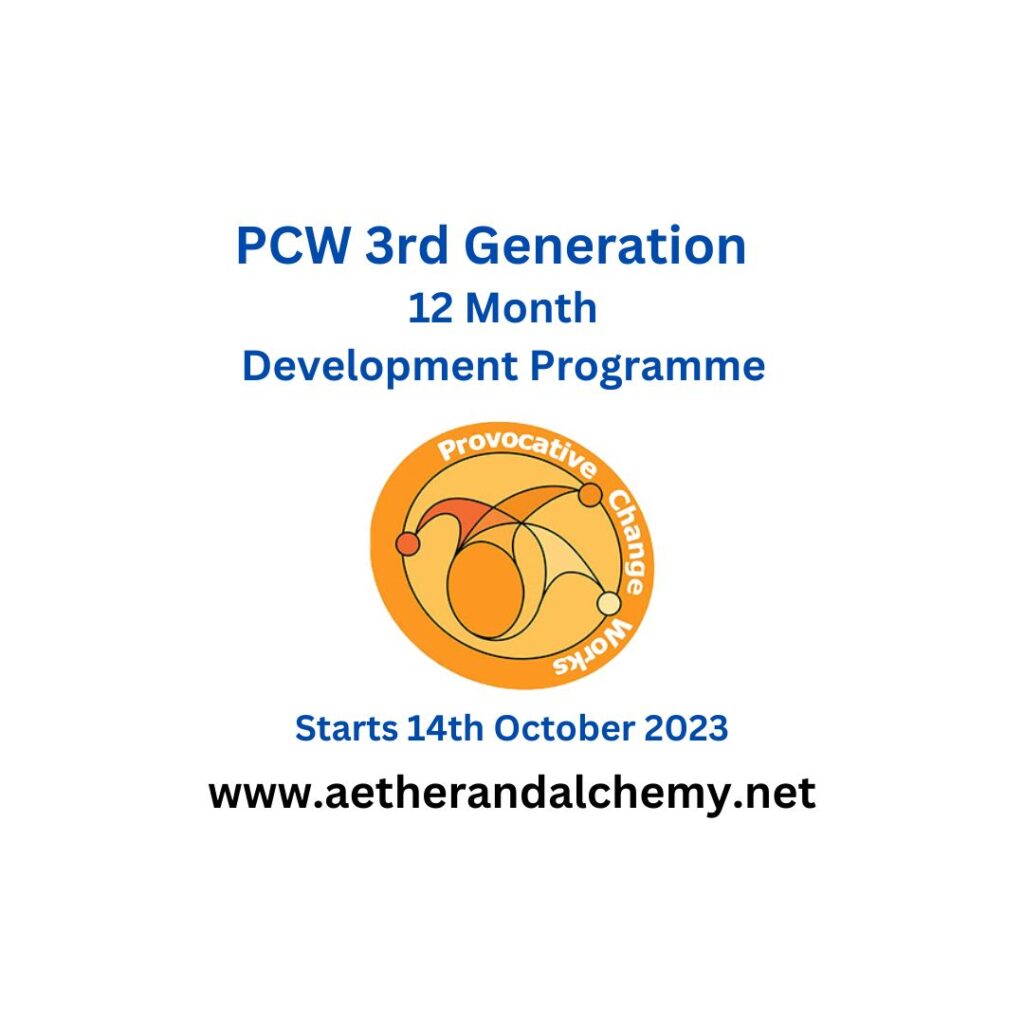close
Menu
close

Are you clear about what produces effective change?
We invite you to contemplate the following questions:
Perhaps you have very clear answers to these questions or perhaps these questions inspire you to search more deeply for the answers.
These are BIG questions with BIG implications for anyone involved in change work.
We invite you to join a two session workshop Practicing Change Work in Constructed Reality: Learning to Operate in the Realm of the Therapeutic Wizards. Psychologist and author Dr Stephen Bacon will be your guide in exploring some of the fundamental limiting assumptions with which much of psychology and change work operates. He will also share the implications of what this means for anyone engaged in change work and how, by challenging these assumptions, it is possible to develop a new freedom and fluidity and to achieve better outcomes.
If you are bold enough to let go of some dearly held assumptions about change work then this workshop will provide the perfect opportunity for you.
The question of how psychotherapy and other forms of change work operates is central for any change agent who wishes to help their clients. Our standard explanations are full of hidden assumptions that appear logical but, in actuality, act to limit positive outcomes.
"But surely what we need are the best and most effective therapeutic tools and techniques?" - Not necessarily!
The most misleading assumption is that psychological techniques have inherent power and are responsible for change. This assumption is easy to test if one reviews the literature on therapist training and experience. Put simply, if techniques have inherent power, then trained therapists—who know techniques—should have better outcomes than the untrained.
"As well as the right tools and techniques, you surely need to build up masses of experience?"
Similarly, experienced therapists should be superior to less experienced therapists because they know more techniques and have practiced them more assiduously. A review of the evidence demonstrates that these hypotheses are not supported; hence, techniques have no inherent power and are, instead, culturally sanctioned healing rituals.
"Ok, so what actually drives effective change work interventions?"
In place of this dependence on techniques, enlightened therapists realize that therapy is actually driven by beliefs and expectations. As long as the client believes the proposed explanation for the problem—and a logical prescription designed to resolve that problem—change work is effective. This new model creates a sense of fluidity and creativity in the therapeutic milieu that is conducive to superior outcomes and to outcomes that prioritize a client-centered stance.
"What else is important to realise?"
Two other misleading assumptions are shown to be false:
and
Removing all three of these assumptions allows the change agent to operate in a more liberated space—constructed reality—that is particularly conducive to superior outcomes. This is the realm inhabited by the “therapeutic wizards” such as Milton Erickson and Frank Farrelly, who use it to achieve their remarkable results.
The workshop will consist of two parts; the first session will focus on deconstructing limiting assumptions and the second session will focus on how to use this new freedom and fluidity to achieve better change work outcomes.
The sessions will take place online via Zoom and involve teaching, exercises and discussion.
This workshop will be of interest to anyone involved in change work including psychotherapists, hypnotherapists, NLP’ers. It will also be of value to anyone curious about discovering and questioning some of the fundamental assumptions underlying psychology and change work.

Stephen has a background that bridges spirituality, psychology, and psychotherapy. He has worked as a psychologist in private practice for over 30 years, served as the Vice President for Program Development for Outward Bound USA. He has a Religious Studies degree, and lived in a yoga ashram for almost 6 years.
His current focus has been on exploring how psychotherapy works, the nature of social constructionism, and the connections between spirituality and therapy. He regularly conduct workshops, in the US and internationally, on these topics and have published numerous articles and a recent book, Practicing Psychotherapy in Constructed Reality: Ritual, Charisma, and Enhanced Client Outcomes.

“Despite being on the scene for nearly 150 years, psychotherapy has never has mass appeal. The majority of people who could benefit actively choose not to go. What is more, significant numbers end contact before achieving a reliable improvement in their well-being -25% of more after a single visit. Bacon’s thought provoking book not only explains why but offers a practical and effective alternative for engaging people in therapy and improving outcomes.”
- Scott D. Miller, director of the International Centre for Clinical Excellence
“This provocative book advocates the idea that the therapist is at the core of what makes psychotherapy and effective treatment. Bacon challenges prevailing wisdom by encouraging therapists to develop greater charisma if they want to maximize their impact on client mental health.”
- Michael J. Lambert, Brigham Young University
“I got 20 pages into Practicing Psychotherapy in Constructed Reality: Ritual, Charisma, and Enhanced Client Outcomes and just knew I had to contact Stephen and ask him to share this material. I am glad I did, as Stephen’s work has profound implications for people involved in, or interested in, the whole field of change work”.
- Pete Dalton – Aether and Alchemy
Dates
Tuesday 25th June and Wednesday 26th June. 6:30pm -8:30pm UK time.
Investment
£87 super early booking rate £147 full price

